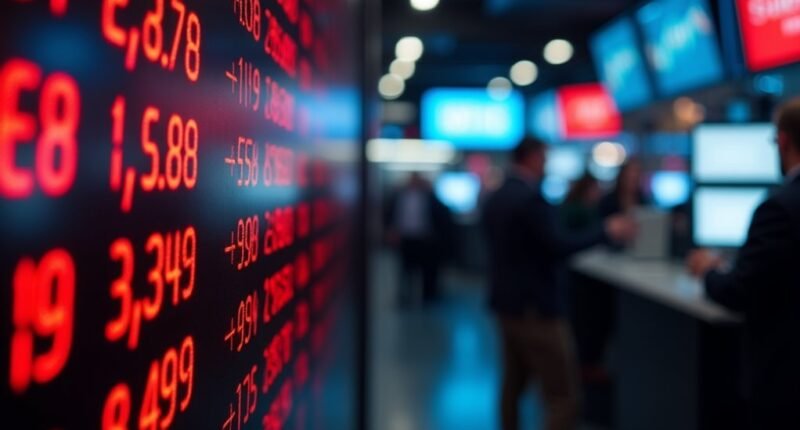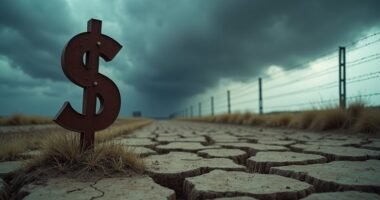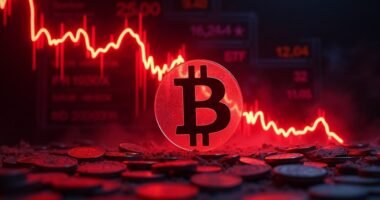In the bustling world of economic predictions, Polymarket has recently stirred the pot with an eye-catching forecast: the odds of a recession in 2025 have now climbed past 60%. This is a significant leap from the mere 20% anticipated back in January, a shift that many attribute to the recent announcement of President Trump’s “Liberation Day” tariff plan. It’s as if the economy just hit a speed bump, sending the Dow Jones spiraling down nearly 3,700 points in a mere two days—talk about a wild ride!
Polymarket, known for its decentralized prediction platform, has become a go-to for forecasting economic events like recessions. As the odds surge, it’s evident that concerns about economic stability are mounting. Other platforms, like Kalshi, echo similar worries with recession odds hovering around 54%. The chatter is loud and clear—rising tariffs may lead to higher inflation and consumer costs, which aren’t good signs for any economy.
Polymarket’s rising recession odds signal growing economic anxiety, with Kalshi’s predictions echoing similar concerns about inflation and consumer costs.
Now, let’s talk tariffs. Trump’s policies were touted as a way to bolster American industries. However, these tariffs could spark a global trade war, with other nations retaliating faster than a kid at a playground. Estimates suggest that these policies might add $2,700 to $3,400 to annual consumer costs. That’s like finding out your favorite burger joint now charges double—no thanks!
As markets react, it’s noteworthy that while traditional stocks tumble, Bitcoin seems to be riding high, crossing the $84,000 mark. Is it a safe haven or just a flashy distraction? Only time will tell. Additionally, navigating global regulations is becoming increasingly important as countries respond to economic shifts with their own policies.
Ultimately, the growing recession odds reflect a collective anxiety among investors and traders about what lies ahead. Will we face a full-blown recession, or just a slowdown? The suspense is thick enough to cut with a knife, but one thing is for sure: the stakes have never been higher in the world of economic forecasting.









